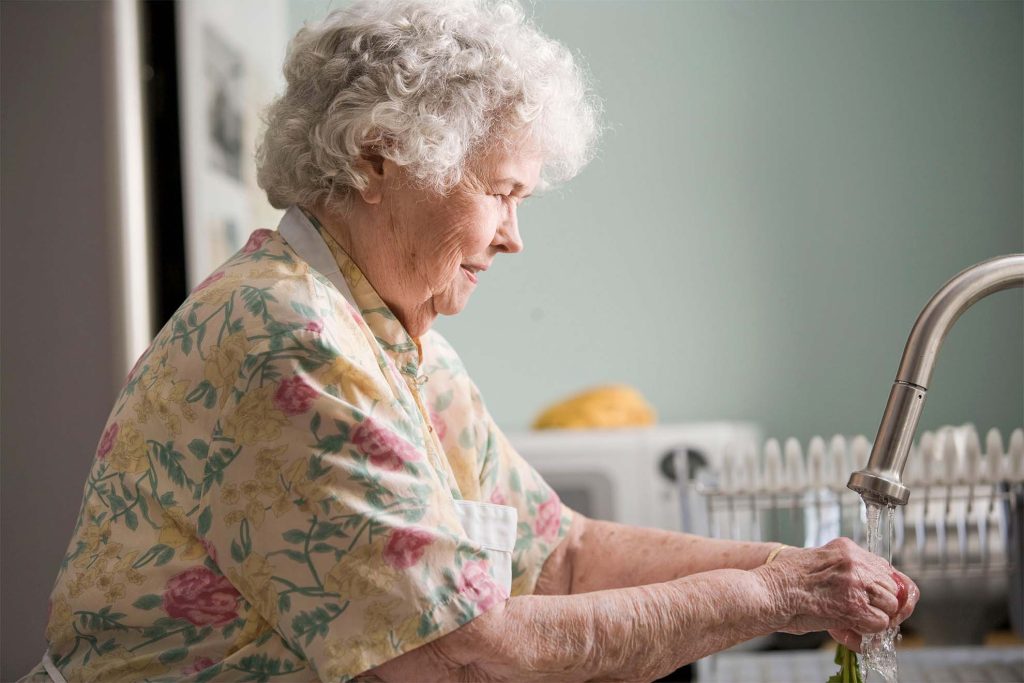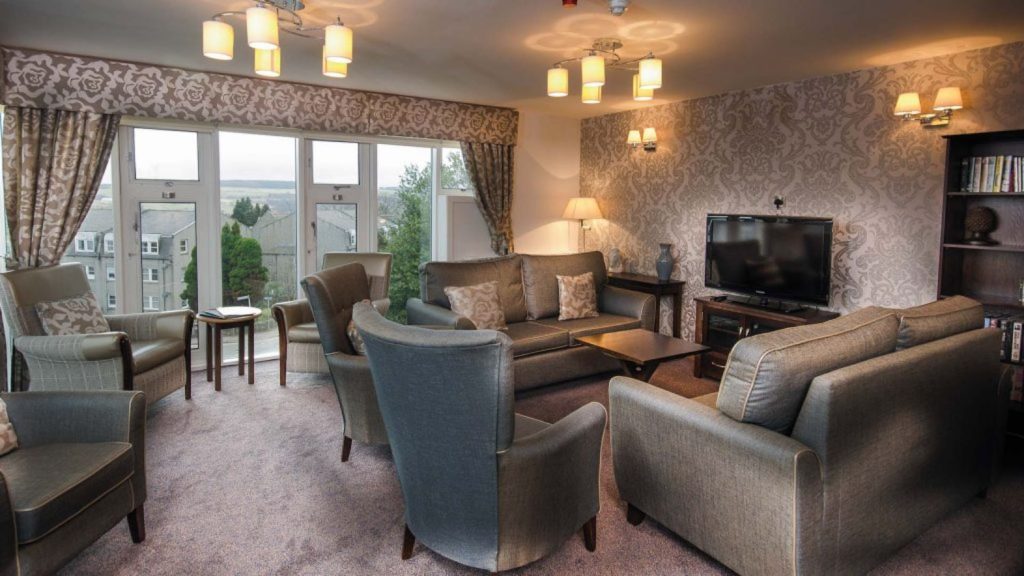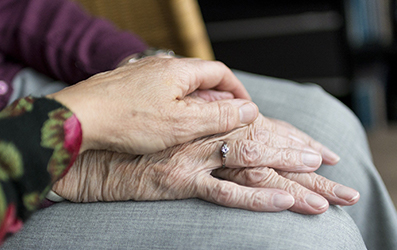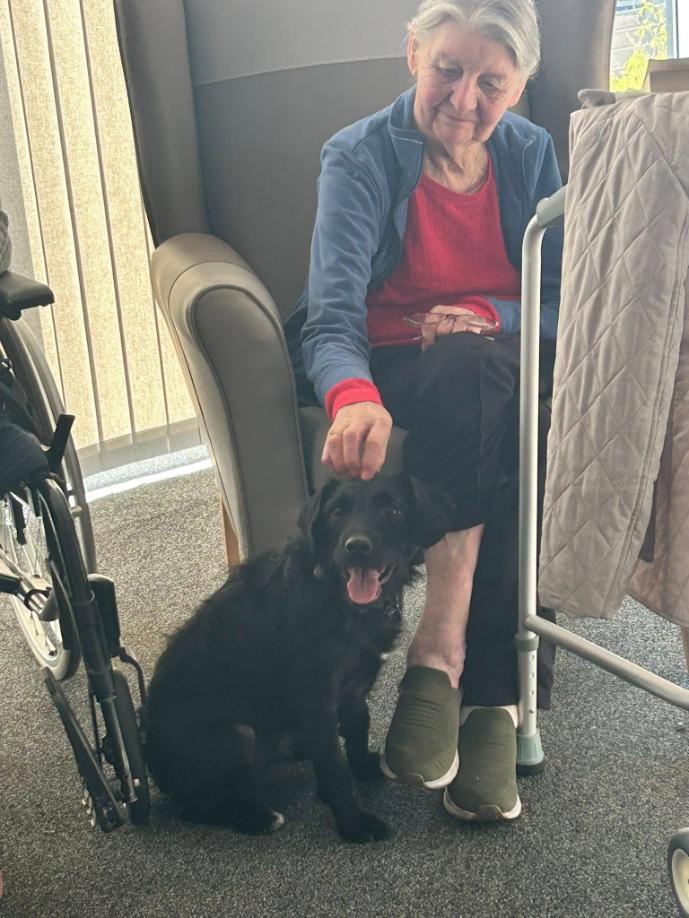Care Home Costs & Weekly Fees

The UK has a diverse range of care homes which is continuously increasing with new care homes being built across Scotland, England, and Wales. The cost of care services in the UK is among the highest in Europe, leading families searching for care homes on behalf of loved ones to feel concerned about how much care homes cost per week. Many people seeking care are unsure if they can afford care home fees and therefore eager to learn about available funding support.
In this blog post, we will dig into the average cost of care in the UK and explore the different types of financial support services. We will also discuss the different types of care homes and what services are typically covered in their fees.
UK Care Home Fees
In the UK, each care home follows a specific fee structure, which is determined by the type of care they offer. Care home fees can also be influenced by other factors such as the care home's location, size, and on-site facilities. Some care homes require a fixed fee to be paid weekly or monthly, while others allow for a pay-as-you-go approach. The total expected costs for an individual depend on the level of care required, the duration of care and what 'additionals' the care home offers its residents such as facilities, activities and excursions.
Many care home fees will only cover essential care services such as personal care and medical care in addition to accommodation and daily meals provided by the home. Additional charges may apply for things such as hair and beauty treatments, social activities and day trips. In most cases, care home residents are responsible for financing their own care costs, however, it certain circumstances, this isn't always possible as not everyone has the savings and assets to fund their care and therefore require financial help.
What Are The Average Care Home Fees?
Carehome.co.uk recently revealed the average residential care home fees, though, it's important to note that this estimate is for residential care only and if an individual requires a higher level of care, for instance, dementia care or nursing care from a registered nurse, the fees will be higher.

Where a care home is located in the UK can affect the cost of its fees. For example, a care home located centrally near a big town or city will have higher fees than a care home located in the north west of Scotland where it's considered more rural.
It's important to be aware that not all care homes will offer the same care services, amenities or lifestyle choices, therefore the fees will differ from home to home. When searching for a care home, you should look around many care homes in your chosen location before making a final decision.
Residential Care Costs
Residential care fees will usually include accommodation, meals and daily personal care. Residential care is appropriate for those who can live independently a majority of the time but may need occasional support with daily tasks such as mobility, bathing or dressing. A care home setting will provide older individuals with a fulfilling way of life with no household or financial responsibilities.

Dementia Care Costs
Dementia care homes often charge a higher cost for dementia care as an individual requires around-the-clock care. People living with dementia often rely on a higher level of care and support and so higher fees are applicable. The dementia care staff working within a dementia unit will receive ongoing dementia training to understand the latest in dementia research, technology and practices. A dementia care home will also offer dementia-friendly activities and therapies which help to minimise symptoms such as stress and anxiety which are common symptoms.
Nursing Care Costs
Nursing care is the most expensive care type within a care home or nursing home, as nursing residents need 24/7 personal care and medical assistance provided by a Registered Nurse. Nursing care fees will include the care home or nursing home's daily accommodation, medication management, meals, personal care and medical support. Individuals receiving nursing care will typically need constant care and monitoring, which equates to higher fees.

Respite Care Costs
Respite care is a type of short term care offered to individuals needing temporary care. Older individuals who are recovering from an illness or who have recently been discharged from hospital can benefit from respite care. Respite care is also a suitable care option that enables caregivers to take a break from their full-time care duties. In order to decipher the best care approach for an individual receiving respite care, a care home manager will perform a needs assessment to determine a person's respite care costs.
What is Included In UK Care Costs?
Care home costs will differ depending on the care services offered and the level of care that someone requires. Care costs will usually cover the daily necessities including meals, accommodation, and personal care.
Each care home sets its own weekly fees. Some will include everything within a fixed fee and some will charge additionally for certain services, so you'll need to talk to the home manager and compare their fees against other care homes.
What is an All-Inclusive Care Home?
All-inclusive care homes have become an increasingly popular type of care home for older individuals, due to their appeal of charging a fixed weekly fee that covers residents' full-time care, accommodation, meals as well as any amenities, services and activities that the home offers. The overall cost tends to be slightly more when compared with other care homes, however, the convenience of residents having access to everything makes an all-inclusive care home a preferred choice.


Experiencing the peace of mind that comes with avoiding unexpected fees can be truly comforting, especially as living costs continue to rise. At an all-inclusive care home, residents pay a fixed fee that covers all personal care expenses, accommodation, as well as access to various activities and facilities.
These all-inclusive care homes typically offer a wide range of professional care services, although some may specialise in a particular type of care. Finding the most suitable care type is vital, so it's advisable to explore a variety of care homes and compare their offerings to ensure you discover the best fit for your loved one's needs.
How to Pay For Care Costs
Individuals are usually expected to pay for their own care fees. However, some people cannot afford the ongoing care costs. In this instance, they may be eligible for financial assistance from the local council or through the NHS, known as "Complex Clinical Care".
To assess a person's eligibility for care funding, a financial evaluation is conducted, taking into account their total savings, private and state pensions, and assets. If the individual's finances fall below the savings threshold, they may qualify for funding provided by local authorities.
If you are uncertain about whether you or your loved one to cover long-term care expenses, consulting a financial advisor can be beneficial. A financial expert can offer valuable advice and guidance on your financial situation, enabling you to explore appropriate options and make well-informed decisions regarding payment for care.
Acquiring Help Towards the Costs of Your Care Home Fees
To qualify for local authority funding, individuals will need to have a financial assessment that looks at all assets and income, known as a means test. If your local authority determines your total assets and savings to be below the upper capital limit, the local authority will contribute toward the cost of care.
Individuals with a 'primary health need' may qualify for NHS Complex Clinical Care funding. To determine whether an individual is eligible for Complex Clinical Care, an assessment will need to be carried out by a multi-disciplinary team. With NHS Continuing Healthcare, it's important to note that the needs assessment is also means-tested to cover accommodation costs and not care costs.
If a person is unable to acquire Complex Clinical Care or local council funding, there is the option to apply for a deferred payment agreement. This is when the local council pays for the fees and once a person's home is sold, the money will need to be repaid to the council.
It's important to note that financial support is not always guaranteed and some care homes may not accept funding from the local authority. The first thing you should do when speaking to a staff member at a care home is to enquire about their policy on third-party funding.
Local Authority Funding
Local authority funding refers to funding provided by a local council to provide support to individuals who cannot afford to pay for care fees. To be accepted for funding, a means test is conducted, which involves a financial assessment of an individual's financial situation including any pensions, assets and savings.
While funding from the local authority covers a care home's accommodation, meals and personal care, it may not extend to cover additional services or amenities offered by a home. Services charged as extra will need to be paid for by the individual.
A top-up fee may be required in some instances. This is when someone has selected a more expensive care home that exceeds the local authority's personal budget, and so the individual or their family is required to cover the remaining cost.
Complex Clinical Care
Complex Clinical Care means that the NHS will fund a person's care costs. This is appropriate for those who have significant health needs, such as a terminal illness or long-term health condition.
To be eligible for this type of funding, a full assessment is carried out by a team of healthcare professionals. This assessment will thoroughly assess a person's current mental and physical needs, and look at whether a person's care needs are complex, unpredictable or intense.
A checklist tool is used to look at the following areas:
- breathing
- nutrition
- continence
- skin
- mobility
- communication
- psychological and emotional needs
- cognition
- behaviour
- altered states of consciousness
- drug therapies and medication
If a healthcare team believes the individual to have 'priority' 'severe' or 'high' in one or more of the above areas, they will likely be accepted for NHS funding to cover the cost of their daily care.
Self-Funding Your Own Care Costs
Self-funding your own care means you can afford to pay for your own care and therefore don't require financial support from the NHS or local authority. This means that you or your family will be fully responsible for covering the full cost of care home fees. Self-funding is only appropriate for individuals with sufficient savings or assets which can be used to pay for care.
Care home fees can differ based on factors such as the size of the home, its location, the type of care services they provide and the facilities they offer. Moving to a care home is a big financial commitment that requires careful thought and preparation before making a decision.
Explore Our Care Home In Aberdeen
Deeside Care Home, situated in Cults, Aberdeen, is a purpose-built facility dedicated to providing outstanding care for individuals with dementia, as well as offering Residential Care, Nursing Care, Respite Care, and Palliative Care services. Our highly skilled and devoted team ensures round-the-clock support, enabling dementia residents to lead fulfilling lives. Equipped with extensive training and experience, our staff is capable of meeting each resident's unique needs throughout their entire care journey.


Our commitment to our residents' well-being goes beyond the physical space. We provide access to a wide range of all-inclusive facilities and amenities, available at any time of the day, to enable them to engage in their favorite activities and enhance their mental, physical, and emotional health. Our all-inclusive care home enables residents to enjoy fine dining, a games room, activities programme, cinema room and much more, providing opportunities for countless fun, socialising and discovering new interests.
Speak to our Friendly Team Today
If you are interested in learning more about the excellent care services and facilities we have to offer individuals at Deeside Care Home, give us a call on 01224 869816 or send an email to info@deesidecare.com to speak to our helpful team today.





